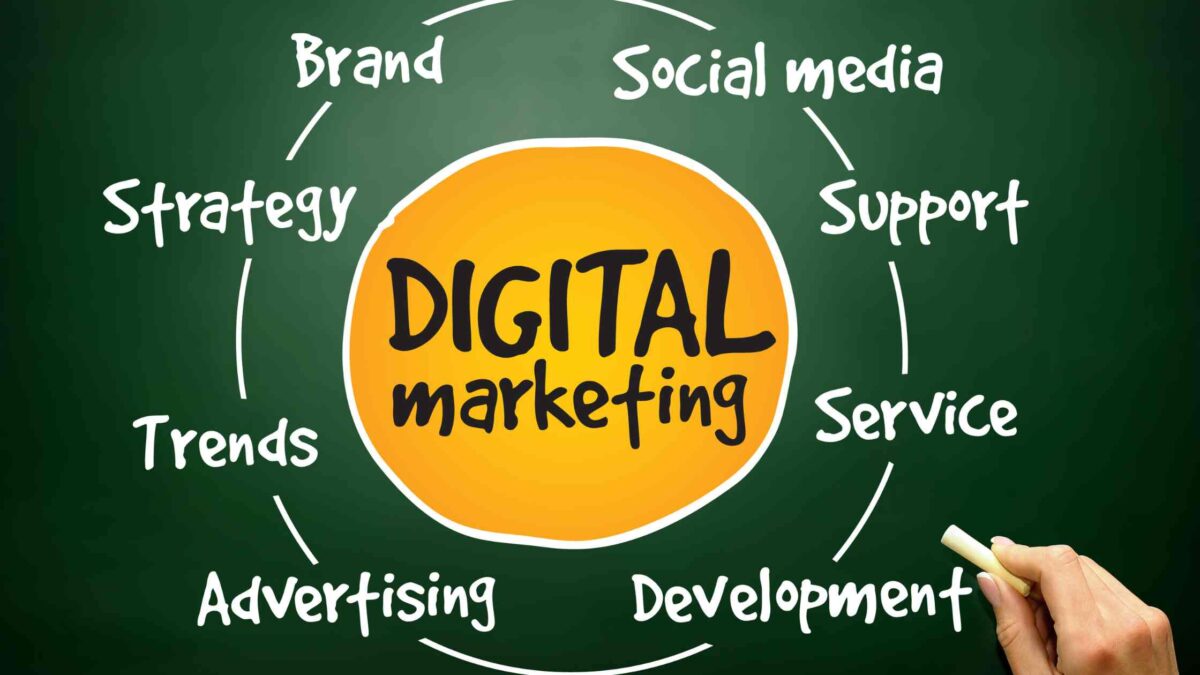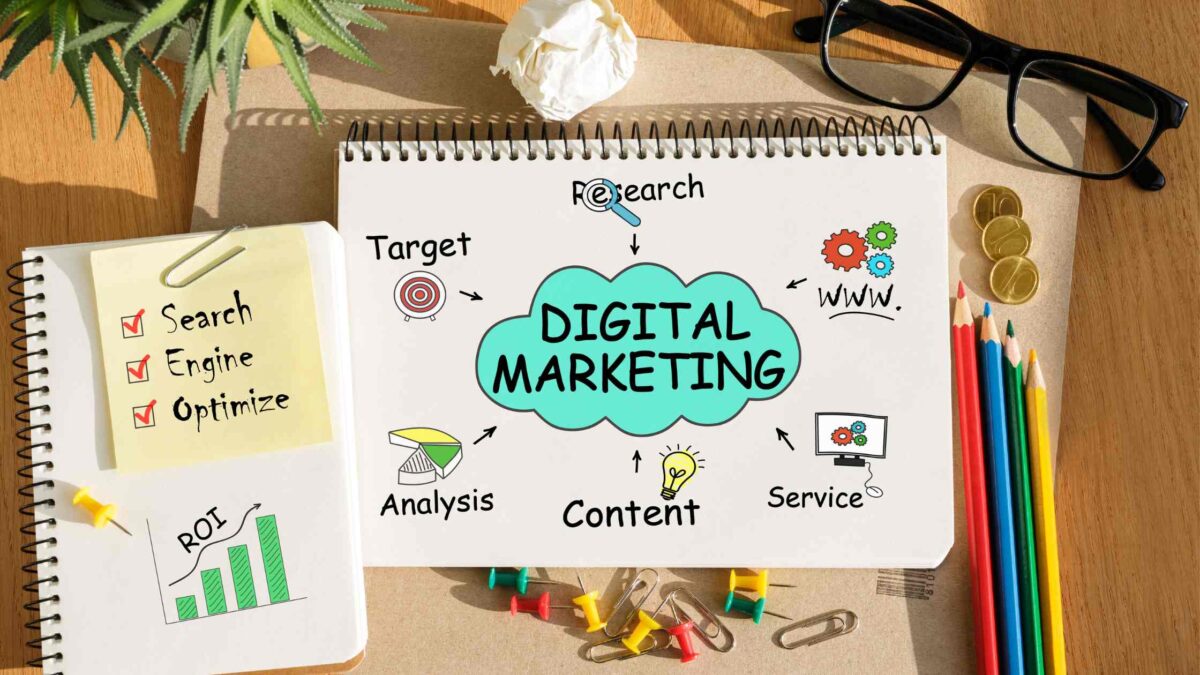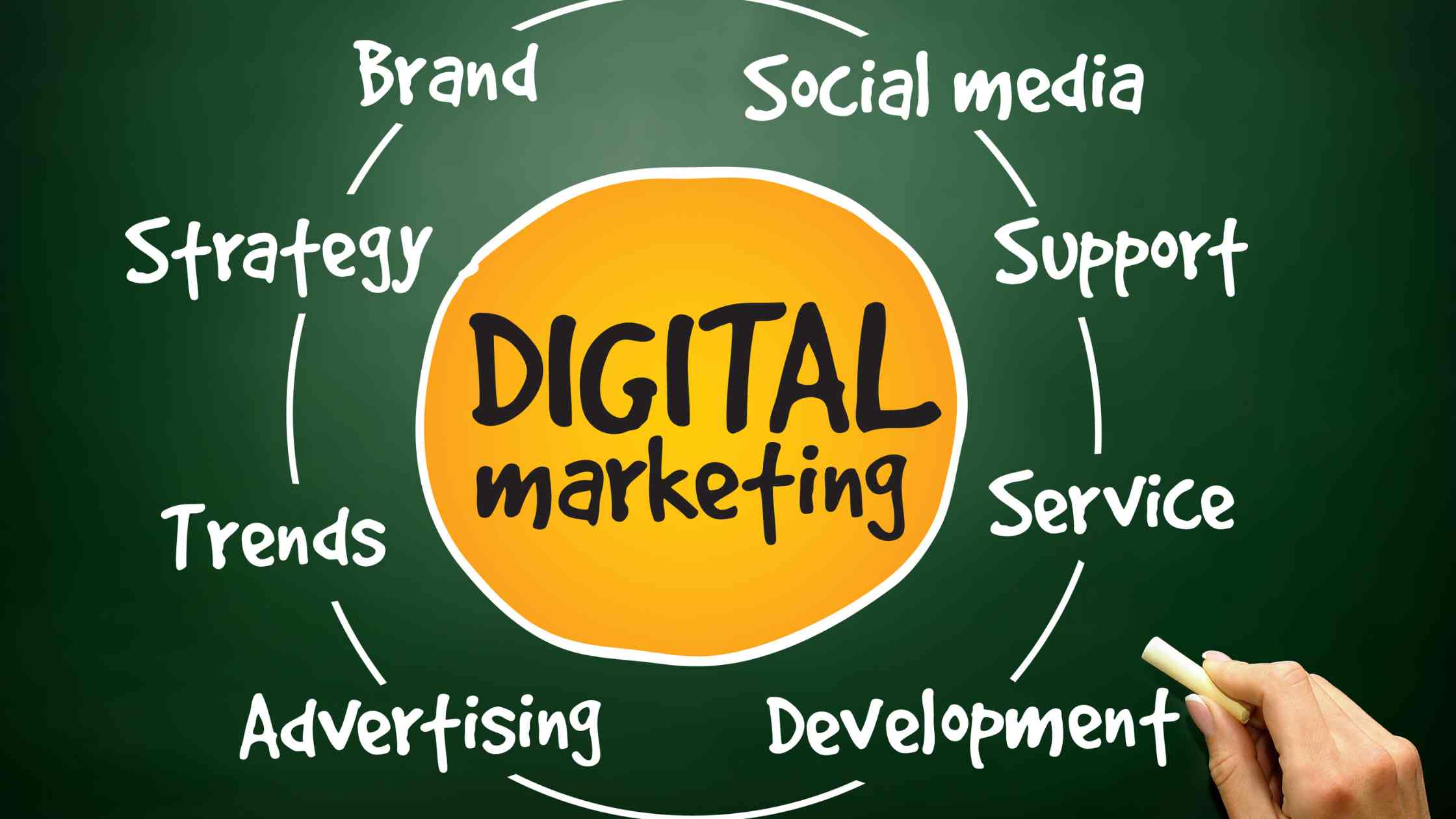In the fast-paced world of business, having a solid digital marketing strategy is paramount to success. Whether you’re a seasoned entrepreneur or just dipping your toes into the vast ocean of online commerce, understanding the tools and techniques available can make all the difference in reaching your audience effectively. In this beginner’s guide, we’ll explore the fundamental concepts of digital marketing and introduce you to some powerful tools that can elevate your online presence.
Social media has become a cornerstone of digital marketing, providing businesses with a direct line of communication with their target audience. With platforms like Facebook, Instagram, Twitter, and LinkedIn, you can engage with customers, build brand awareness, and drive traffic to your website. By crafting compelling content and leveraging the power of social media advertising, you can effectively reach and connect with potential customers where they spend their time online.
What is Digital Marketing?
Digital marketing encompasses all online efforts aimed at promoting and selling products or services. Unlike traditional marketing channels such as print or television, digital marketing leverages the internet and electronic devices to reach potential customers. This can include a wide range of tactics, from social media advertising to search engine optimization (SEO) and email marketing.

digital marketing offers a wealth of opportunities for businesses to connect with their target audience and achieve their marketing goals. By leveraging the right tools and techniques, you can elevate your brand’s online presence, drive traffic and conversions, and ultimately, achieve success in the digital marketplace. Stay tuned as we dive deeper into each aspect of digital marketing in the coming posts. Let’s embark on this journey together and unlock the power of digital marketing!
Why is Digital Marketing Important?
In today’s digital age, consumers are spending more time online than ever before. Whether they’re browsing social media, searching for products on Google, or reading emails, the internet has become an integral part of everyday life. As a result, businesses must adapt their marketing strategies to meet consumers where they are. Digital marketing offers unparalleled reach and targeting capabilities, allowing businesses to connect with their target audience in a more meaningful way.

Essential Digital Marketing Tools and Techniques
Now that we understand the importance of digital marketing, let’s explore some essential tools and techniques to help you succeed in the online realm:
Search Engine Optimization (SEO):
SEO is the process of optimizing your website to rank higher in search engine results pages (SERPs). By optimizing your site’s content and structure, you can increase visibility and drive organic traffic to your site.
Search Engine Optimization (SEO) is the practice of enhancing a website’s visibility on search engine results pages (SERPs) through organic (non-paid) methods. By optimizing various elements of a website, such as its content, structure, and keywords, SEO aims to attract more traffic and improve the site’s ranking on search engines like Google, Bing, and Yahoo.

Effective SEO involves research to understand user behavior and preferences, as well as staying updated on search engine algorithms to adapt strategies accordingly. By employing techniques like keyword optimization, meta tags, and link building, website owners can increase their chances of appearing higher in search results, ultimately driving more qualified traffic to their site. With the ever-increasing competition online, mastering SEO is essential for businesses and individuals looking to establish a strong online presence and reach their target audience effectively.
Content Marketing:
Content marketing involves creating and distributing valuable, relevant content to attract and engage your target audience. Whether it’s blog posts, videos, or infographics, high-quality content can help establish your brand as a thought leader in your industry.
Content marketing is a strategic approach to creating and distributing valuable, relevant, and consistent content to attract and engage a target audience. Unlike traditional advertising, content marketing focuses on providing useful information, entertaining content, or solving problems for the audience, rather than directly promoting a product or service.
By delivering high-quality content through various channels such as blogs, social media, videos, and email newsletters, businesses can build trust, credibility, and relationships with their audience over time. This approach not only helps in increasing brand awareness but also drives customer loyalty and ultimately leads to higher conversion rates.

Effective content marketing requires understanding the interests and needs of the target audience, creating content that resonates with them, and leveraging different distribution channels to reach them where they are most active. By consistently delivering valuable content, businesses can position themselves as industry leaders and gain a competitive edge in the market.
Social Media Marketing:
With billions of users worldwide, social media platforms like Facebook, Instagram, and Twitter offer unparalleled opportunities for businesses to connect with their audience. Social media marketing involves creating and sharing content on these platforms to increase brand awareness, drive traffic, and generate leads.
Social media marketing involves using social media platforms to connect with your audience, build brand awareness, drive website traffic, and increase sales or leads. It encompasses various activities, including creating and sharing content, engaging with followers, running ads, and analyzing results.
Businesses leverage platforms like Facebook, Instagram, Twitter, LinkedIn, and Pinterest to reach their target audience where they spend time online. Effective social media marketing starts with understanding your audience’s demographics, interests, and behaviors to tailor your content and messaging accordingly.
By consistently posting relevant and engaging content, interacting with followers, and utilizing features like hashtags and stories, businesses can increase their visibility and engagement on social media. Additionally, running targeted ads allows businesses to reach specific demographics and drive conversions. Analyzing key metrics such as engagement, reach, and conversion rates helps businesses refine their social media strategy for better results over time.
Overall, social media marketing is a powerful tool for businesses to connect with their audience, build brand loyalty, and achieve their marketing goals in today’s digital age.
Email Marketing:
Despite the rise of social media and other digital channels, email marketing remains one of the most effective ways to reach your audience. By building an email list and sending targeted campaigns, you can nurture leads and drive conversions.
Email marketing is a digital marketing strategy that involves sending targeted messages to a group of subscribers via email. It is an effective way for businesses to communicate with their audience, promote products or services, and build relationships. Email marketing campaigns can range from simple newsletters to personalized, automated sequences based on subscriber behavior.
The key components of successful email marketing include building a quality email list, creating engaging content, designing visually appealing emails, and analyzing performance metrics. By segmenting their email list and delivering relevant content to each segment, businesses can improve open and click-through rates while reducing unsubscribed.
Personalization techniques, such as using the subscriber’s name and sending customized product recommendations, can further enhance the effectiveness of email marketing campaigns. Additionally, integrating email marketing with other digital marketing channels, such as social media and content marketing, can amplify results and drive conversions. With its high ROI and ability to nurture leads over time, email marketing remains a valuable tool for businesses looking to connect with their audience and drive revenue.
Analytics:
Finally, no digital marketing strategy is complete without proper analytics. By tracking key metrics such as website traffic, engagement, and conversion rates, you can measure the effectiveness of your campaigns and make data-driven decisions to optimize performance.
Analytics is the process of collecting, analyzing, and interpreting data to gain insights and make informed decisions. In the context of digital marketing, analytics play a crucial role in evaluating the performance of various marketing strategies and channels.
By tracking key metrics such as website traffic, conversion rates, bounce rates, and user engagement, businesses can assess the effectiveness of their marketing efforts and identify areas for improvement. Tools like Google Analytics provide valuable data on user behavior, demographics, and interactions, helping marketers understand their audience better and tailor their strategies accordingly.
The ability to measure the ROI of marketing campaigns and optimize performance in real-time empowers businesses to make data-driven decisions and achieve their marketing objectives more effectively. By regularly monitoring and analyzing relevant metrics, businesses can refine their strategies, allocate resources wisely, and ultimately drive better results in today’s competitive digital landscape.
Conclusion
In conclusion, digital marketing offers endless opportunities for businesses to reach and engage their target audience online. By leveraging the right tools and techniques, you can elevate your brand, drive traffic, and ultimately, achieve your business goals. Whether you’re a small startup or a multinational corporation, embracing digital marketing is essential in today’s competitive landscape. So, what are you waiting for? Start exploring the world of digital marketing today and unlock your full potential online!
- 10 Best Essential Business Management Techniques You Need to Know
- Maximize Efficiency and Growth: Expert Product and Service Management Solutions
- Why Macroeconomics is the study of the economy as a whole – Best Info
- Understanding Supply and Demand: A Comprehensive Explanation
- The Nature and Scope of Macroeconomics- A Best Guide
FAQ
tools for online marketing
Google Analytics: A powerful analytics tool that provides insights into website traffic, user behavior, and conversion rates, helping businesses track and analyze the performance of their online properties.
Mailchimp: An email marketing platform that allows businesses to create, send, and track email campaigns, manage subscriber lists, and automate email sequences to nurture leads and drive conversions.
Hootsuite: A social media management tool that enables businesses to schedule posts, monitor mentions, engage with followers, and analyze social media performance across multiple platforms from a single dashboard.
What are the things needed for digital marketing?
For digital marketing, several key elements are essential to effectively reach and engage with your target audience:
Website: A well-designed and user-friendly website serves as the central hub for your online presence. It should provide relevant information about your business, products, and services, as well as clear calls-to-action to encourage visitors to take desired actions.
calls to action
Content: High-quality, relevant, and valuable content is crucial for attracting and engaging your audience. This includes blog posts, articles, videos, infographics, podcasts, and more. Content should be tailored to your target audience’s interests and needs and distributed across various channels to maximize visibility.

